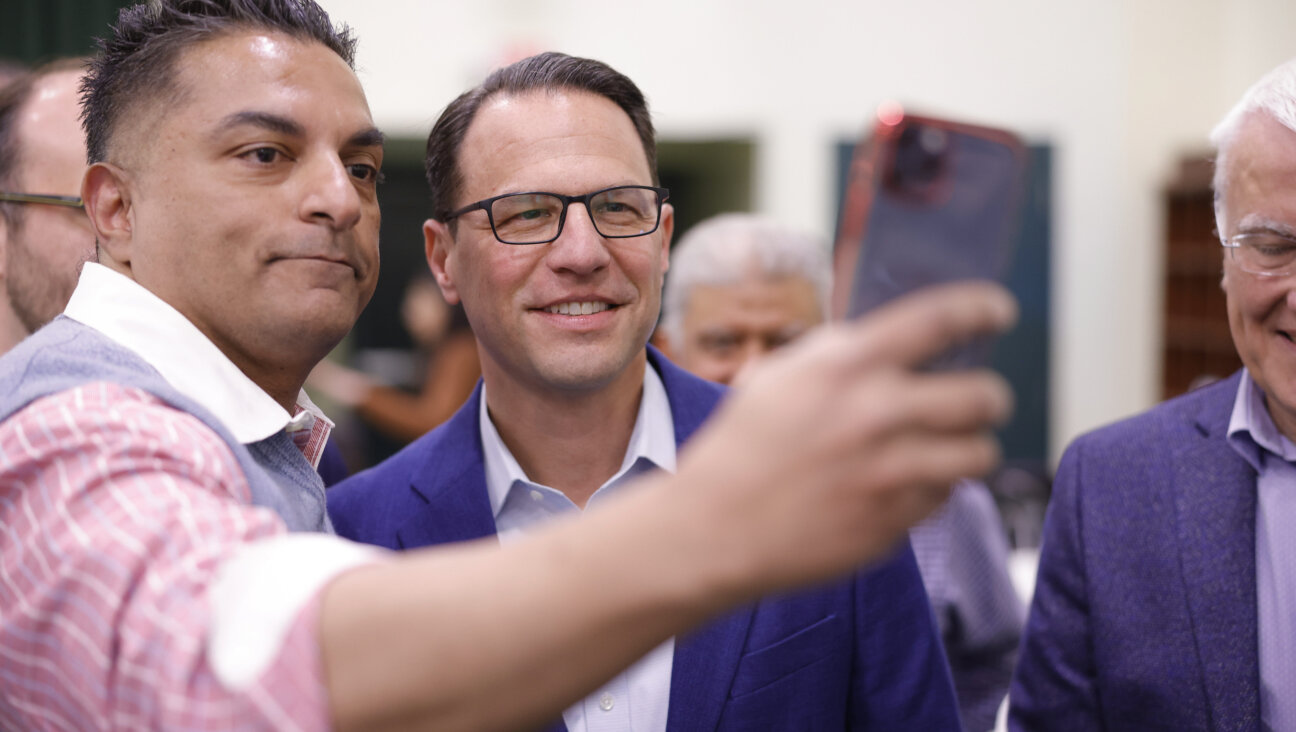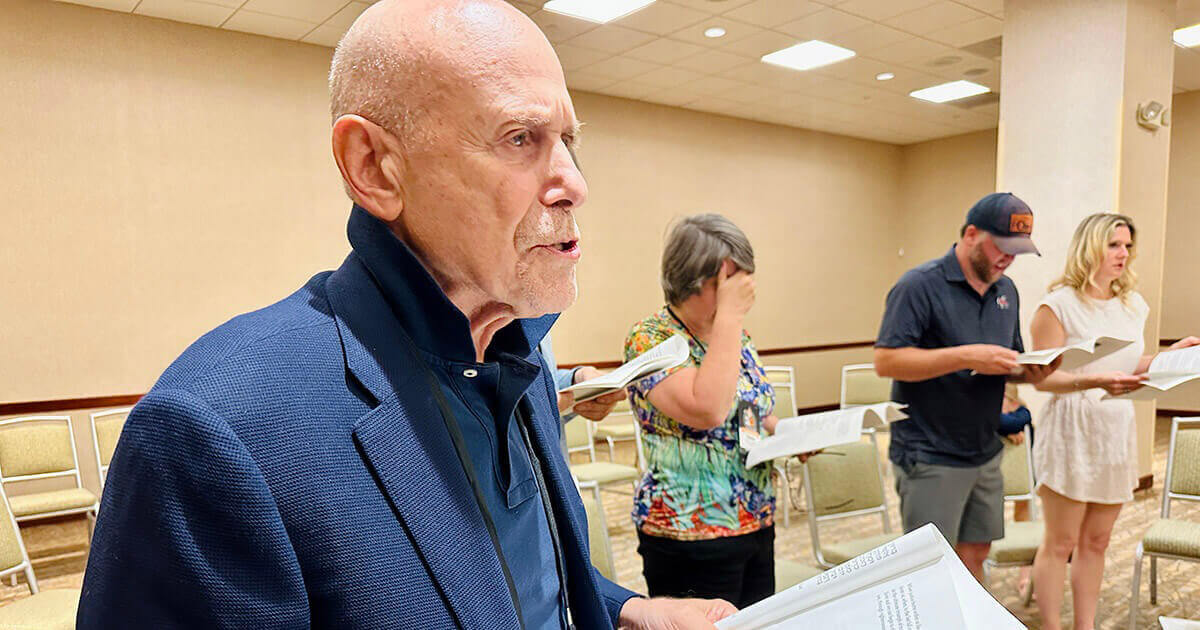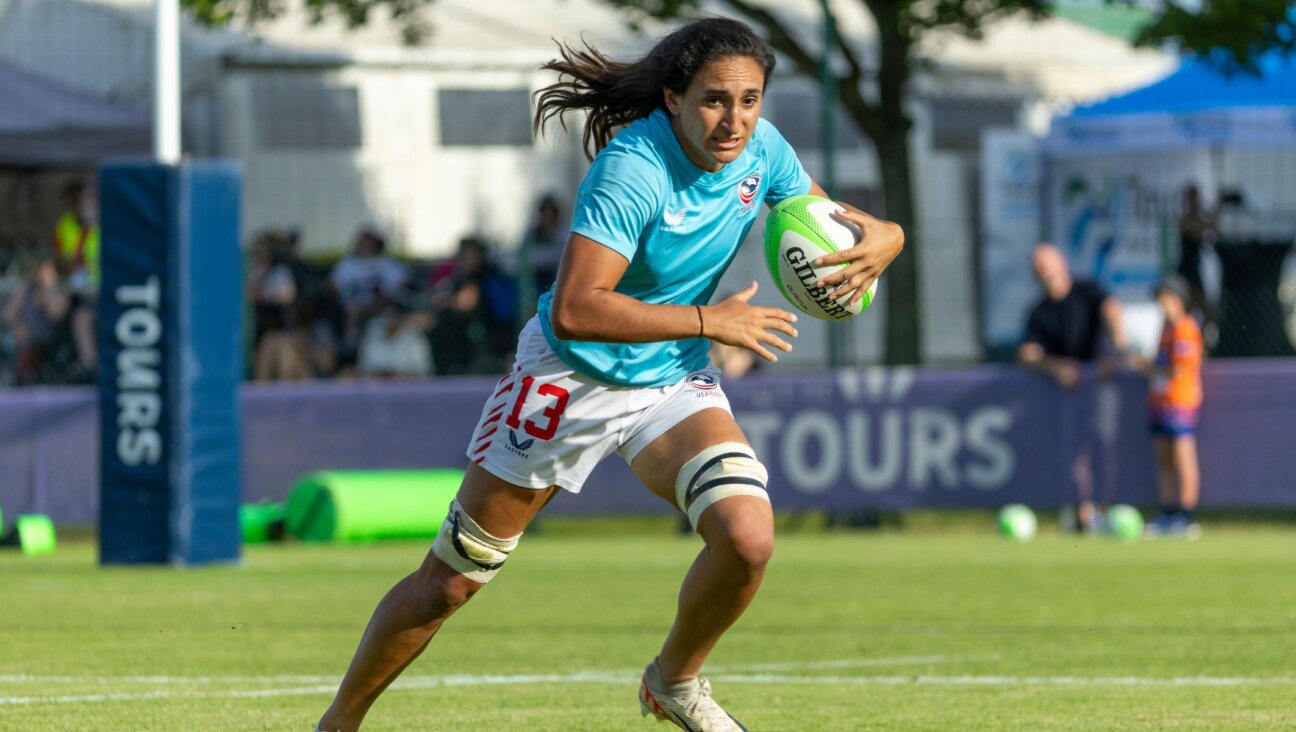Eli Zborowski Center Stage at American Society for Yad Vashem Luncheon

Former Arkansas governor Mike Huckabee recalls his visits to Yad Vashem Image by karen leon
“Because I inaugurated the spring luncheon more than a decade ago, I have a proprietary feeling about this event,” said public relations specialist Rochel Berman, keynote speaker at the Annual Spring Luncheon of The American Society for Yad Vashem, held at the Marriott Marquis on May 16. “I’d like to speak about Eli Zborowski, president and founder of the American and International Societies for Yad Vashem, who has been a central figure in my life for the past two decades.” A past executive director of the society, Berman, who, with her husband, George Berman, wrote “A Life of Leadership: Eli Zborowski, From the Underground to Industry to Holocaust Remembrance” (Ktav Publishing House/Yad Vashem, 2011), described Zborowski as one who “never saw himself as a victim — feelings common among survivors. Eli’s Holocaust experience was about struggle and courage rather than victimization and despair.” Berman informed: “Eli has maintained a very warm relationship with non-Jews in [his birth town] Zarki and with the Polish government, enabling him to play a significant role in opening the door to diplomatic relations between Israel and Poland.”
Berman touted “Eli, the entrepreneur, who as a young immigrant began peddling camera parts door to door in Manhattan and within a decade became president of Sheaffer Latin America,” which is known as the Shaefer Pen Company.” Zborowski played a role in establishing many firsts in the country, including the first Yom HaShoah commemoration; the first survivors umbrella organization, The Warsaw Ghetto Resistance Organization, and the first publication devoted to Holocaust remembrance, “Martyrdom and Resistance.” Zborowski introduced the luncheon’s two honorees: Sima Katz of Shavl, Lithuania, who, Zborowski said, is “a survivor of the Shavl ghetto who was hidden by a Christian family,” and Iris Lifschitz Lindenbaum, “a granddaughter of survivors Sam and Stella Skura.”
In July 1991, during an interview at the Forward’s East 33rd Street offices, Lithuanian-born Yitzhak Arad, then chairman of Yad Vashem Directorate, lamented that children of survivors — the second generation — were not as interested in the Holocaust as was the “third generation.” Arad said: ”This confirms the sociological formula that ‘the third generation wants to remember what the second generation wanted to forget.’” My conversation with Arad shuttled between English and Litvishn (Lithuanian) Yiddish. I told him that my father, Matvey Bernsztein, had donated a number of Holocaust archives to Yad Vashem, Hebrew University and Yeshiva University. Zborowski was sitting in on the interview. “Was khaver [Comrade] Matvey your father?” Zborowski asked, astonished. I nodded. “He was a witness at my wedding in Warsaw after we were liberated,” he said. It was from Zborowski that I first learned that my father had made it to Warsaw following his release from Soviet prison, before going on to Germany, where he and Zborowski would meet at Feldafing.
Mike Huckabee Recalls His Visits to Yad Vashem at Eagles’ Wings Jerusalem Banquet Honoring Harvey Krueger.
“We stand with Israel. We stand with the Jewish people against every slander, against every attack. Am Yisrael chai! We are with you!” proclaimed Robert Stearns, founder and executive director of Eagles’ Wings, at the organization’s May 17 Jerusalem banquet, held at Crowne Plaza Times Square. Among the 1000 multidenominational Christian and Jewish guests were rabbis, communal leaders and a large Israeli contingent, including Ido Aharoni, counsul general of Israel in New York. Keynote speaker Mike Huckabee, former governor of Arkansas, quipped, “Why on God’s earth you would invite a former Baptist minister who spent 20 years in politics to the podium is beyond me.” The evening’s honoree, philanthropist Harvey Krueger, who is vice chairman of Barclays Capital, said simply: “My speech is short. I will pay $50,000 for 10 [Israel Experience college] scholarships.” The audience applauded both the gift and the speech’s brevity. The Israel Experience college scholarships send Christian student leaders to Israel to train as ambassadors who can be articulate voices for Israel on their campuses and in life.
“The Jewish people [and] Israel don’t have enough friends even in the U.S. Congress” Huckabee said. Several shoutings of “Amen!” were heard in the room. He continued, “And they certainly have very few friends in the Middle East. Every time we win a friend for Israel, we win a friend for democracy, for liberty… for every person across the face of the planet.” Glossing over his own humble beginnings, “growing up dirt poor in Arkansas… the first male from my family who graduated from high school,” Huckabee described the impact that Israel — and Yad Vashem in particular — had on him as an 18-year old in 1973. “Just before the Yom Kippur War, I went to the Middle East,” he said. “Years later, as a young American father, I took my two teenage sons and an 11-year-old daughter [to Israel]. I wanted to make sure they saw Yad Vashem because what happened in the Holocaust could happen again if we did not understand…. This was not the genocide of Rwanda…. [My daughter] saw the depiction of the Warsaw ghetto; how children were left to fend for themselves as their parents were taken away by death trains…. She stared at the photos. Bodies stacked so high, they did not resemble humanity. I kept praying: ‘I hope she gets it, I hope she understands.’ She did. A week [before the dinner] she gave birth to my granddaughter. I can’t wait till [my daughter] is old enough to take her to Israel and tell her, as I did her mother, why you must never turn your back on atrocities to others.” Musing on relations between Christians and Jews, Huckabee said: “As I say to my Jewish friends, the reason Christians are not the enemy of the Jew but the friend is because everything about the Jewish faith is the foundation of my own faith. A person can be a Jew without being a Christian, but a person cannot be a Christian without the foundation of the Jewish faith.”
Stearns’s three little children sang in Hebrew, and Stern led the crowd in a rousing rendition of Israel’s national anthem, “Hatikvah” (“The Hope”). At the evening’s conclusion, Rabbi Joseph Potasnik, executive vice president of the New York Board of Rabbis, said: “We will continue to fight for a dream when the Jewish state will stand with people of all faiths, because we believe that God created the world with one and from the one there are many. Tonight you remind us that there comes a time when the many must stand together.” Among the guests were Rabbi Shmuley Boteach, Zionist Organization of America president Morton Klein and Forward publisher Samuel Norich.
A message from our editor-in-chief Jodi Rudoren

We're building on 127 years of independent journalism to help you develop deeper connections to what it means to be Jewish today.
With so much at stake for the Jewish people right now — war, rising antisemitism, a high-stakes U.S. presidential election — American Jews depend on the Forward's perspective, integrity and courage.
— Jodi Rudoren, Editor-in-Chief






















